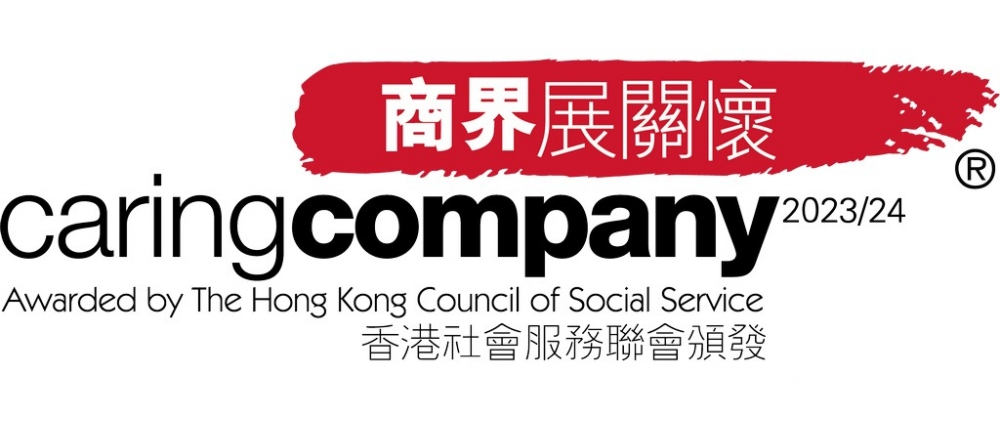Hong Kong has an excellent geographical advantage, a sound legal system and simple and low tax system. The free flow of information, talent, capital and goods are beneficial for business development of all industries. Hong Kong is the best platform for Mainland enterprises to explore their business globally; and is also a springboard for the foreign enterprises to explore their business in China.
● Hong Kong investment environment ● Monetary management and systems ● Accounting and auditing system for the Hong Kong companies ● Labor market
Hong Kong investment environment Hong Kong’s advantages include: 1. At the center of the Asia-Pacific region Geographically, Hong Kong is located in the center of the Asia-Pacific region. It has convenient transportation systems; there are direct flights to the main cities in China and all over the world. Many multinational enterprises select Hong Kong as the regional headquarters, to run and manage their regional business. Hong Kong is the best choice for the multinational companies to set up their Asia-Pacific regional headquarters. 2. Completed Infrastructure Hong Kong possesses world-class transport infrastructure. Hong Kong International Airport provides international passengers and cargo flights to all main cities around the world. Hong Kong also possesses the most efficient container terminals, which provide services including shipping, logistics and related services. The telecommunications infrastructure is very advanced, while we have no restriction on information flow. Here, you can connect to all parts of the world in a very low price, get the first hand information of the latest development in the world. 3. Economic Freedom Hong Kong is one of the most open and free economy in the world. There are no limitations on foreign exchange, and no restriction on the nationality of ownership of the enterprises. Hong Kong has adopted an open and free trade policy: no trade barriers and no restriction on foreign investment. The majority of goods imported and exported are free from any customs tariff, nor not subject to any quota or surcharge. The Government of Hong Kong welcomes all foreign investment and treats the local and foreign enterprises in the same way with no intervention and no subsidy policy, provides a fair economic play field for all companies planed to run their business in Hong Kong. 4. Simple Tax Systems Hong Kong has a simple tax system, and the tax rates are among the lowest in the world. Hong Kong does not levy capital gains tax, adopts a territorial source principle of taxation: only profits which have a source in Hong Kong are taxable. For details, please click “Hong Kong’s Taxation System”. 5. Transparent Legal System Hong Kong has an independent judiciary system and transparent legal system. All people are equal before the law. The sound legal systems and the emphasis of law make Hong Kong one of the most reliable business environments in the world.
Back
Monetary management and systems
1. Foreign Exchange Management Hong Kong money market is one of the largest and most opening markets in the world. The free flow of capital provides great flexibility on the capital management of corporations and financial institutions. 2. Foreign Currency Hong Kong has a mature and active foreign exchange market, which has close connections with other overseas financial centers. Foreign currency transactions are operating for 24 hours a day on a non-stop bases. Enterprises can open multi-currency accounts with banks in Hong Kong, run their business or conduct investment in different currencies.
3. Banking System Hong Kong Monetary Authority is responsible for monitoring the banking systems in Hong Kong. It monitors the operation of banks, maintains the stabilities of the currencies and banks, to reinforce the position of Hong Kong as a global financial center. Hong Kong maintains a three-tier system of deposit-taking institutions: Licensed Banks, Restricted Licence Banks and Deposit-Taking Companies. In addition, many overseas banks have set up their representative offices in Hong Kong. Only Licensed Bank can maintain current accounts and accept deposits of any terms. Restricted Licence Banks are basically engaged in merchant banking and capital market activities. Deposit-taking Companies are mostly owned by, or associated with, banks and are engaged in a range of specialized activities, including consumer finance, etc. Banks in Hong Kong are engaged in various retailing and wholesale banking business, including deposit taking, trade finance, corporate finance, foreign exchange and shares brokerage. 4. Bank Loans and Finance Banks in Hong Kong provide various types of loans and financing to meet the needs of various industries. Every bank has their internal rules for providing finance to enterprises. If the enterprises applying for loans are the bank’s existing customers and with good relationship, the banks may approve the credit more easily. Before the banks consider providing credit, they may assess the risk facing the corporations, request the enterprises to provide their audited financial statements, the latest management accounts, and the analysis of enterprises’ operating environment, etc. The banks also need to understand the enterprises’ background, its market share and competitors. Back
Accounting and auditing systems for Hong Kong companies
Companies incorporated under Hong Kong Companies Ordinance should comply with the following regulations: In line with other commercial centers in the world, Hong Kong companies operating in Hong Kong must keep proper accounting records and performing audit. The relevant requirements are basically same as the international standards but simpler. Details are as follows: 1. Accounting Books and Records All Hong Kong companies should keep proper books of accounts. The accounting records should record all assets, liabilities, income and expenditure, and the details of all goods sold and purchased. Each item should be properly supported and explainable. Companies can keep their accounts in any currencies. According to Inland Revenue Ordinance, the accounts submitted to the Inland Revenue Department shall keep in either Chinese or English language. Every company should retain the accounting records for a period of not less than 7 years. 2. Information Disclosure All limited companies should prepare financial statements according to the requirements of Companies Ordinance and the financial reporting standards and the accounting guideline of the Hong Kong Institute of Certified Public Accountants. The financial statements should reflect a true and fair view on the financial positions and the operating results of the company. According to listing rules, all listed companies shall disclose more information in their annual financial statements or annual report. 3. Reporting Requirements Company directors have the responsibility to produce the Company’s financial statements, which show a true and fair view on the financial positions and operating result, and present such report on the annual general meeting of its companies. All companies should arrange for the copies of financial statements, directors’ reports and auditors’ reports to be sent to the shareholders at least 21 days before the annual general meeting. Companies listed in the Hong Kong Stock Exchange should also send such reports to the Stock Exchange of Hong Kong simultaneously. 4. Auditing Requirements According to the Companies Ordinance, all companies should prepare annual financial statements, and appoint independent auditors to audit their accounts. The appointed auditors should be practicing certificate holders and member of the Hong Kong Institute of Certified Public Accountants under the provisions of the Professional Accountants Ordinance. Apart from the first auditor who can be appointed by the company directors, the subsequent auditors must be appointed by shareholders in the annual general meeting and such appointment holds office till the completion of the next annual general meeting. 5. Reporting Requirements All private companies are required to file the annual returns to the Companies Registry within 42 days after each anniversary of the date of incorporation. Hong Kong listed companies should file the annual returns within 42 days after each annual general meeting. Overseas companies registered under the Companies Ordinance should file a certified true copy of their audited financial statement to the Hong Kong Companies Registry annually. Back
Labor Market
The workforce in Hong Kong are famous for their hardworking and professionalism. They are a great driving force for business development. Hong Kong’s Labour law is simple and clear, and hence the employment relationship is easier to handle. Recruitment Employers may appoint recruitment agencies and management consulting companies, specialized in recruitment services, to recruit the staff on their behalf. The employer can also post the job advertisement on local newspapers, magazines, the Labour Department’s Employment Services Division to recruit suitable talented persons. Employment Contract An employee who has been employed continuously by the same employer for four weeks or more, with at least 18 hours worked in each week is regarded as being employed under a continuous contract. A contract of employment is the employment agreements set between employers and employees, and can be made orally or in writing, with expressed or implied terms. The contract of employment should include the length of notice or the procedures required to terminate the contract by either parties. In addition, employers and employees are free to set their employment terms and conditions if it is not violating the provisions of the Employment Ordinance. Wages and Benefits Hong Kong labour is subject to minimum wage of HK$ 32 per hour. Except these, the wage level is mainly determined by the demand and supply situation of the labour market. Wages are usually calculated in hourly, daily, monthly, or per job / work basis. Apart from the basic welfare required under the Employment Ordinance, employers can decide whether to provide other welfares. Labour Law 1. Employment Ordinance The Employment Ordinance is the principal legislation governing the employment relationship in which apply to all employees. The Ordinance regulates the payment of wages, contract of employment and the operation of employment agencies, to provide the basic employment protection and benefits for employees, including statutory holidays, paid annual leave, sickness allowance, and termination of employment contracts, etc. 2. Employee’s Compensation Ordinance Employers have the responsibility for compensation to employees injured at work in the course of employment, or compensation to the family due to employees’ death caused by accidents arising out of and in the course of employment. All employers should purchase the Employee’s Compensation Insurance to cover their liabilities both under the Employee’s Compensation Ordinance and common law. 3. Occupational Safety and Health Ordinance This Ordinance provides for the safety and health protection to employees in workplaces, both industrial and non-industrial, such as factories, construction and engineering sites, restaurants, commercial buildings and other workplaces (e.g. offices and educational institutions). 4. Mandatory Provident Fund Schemes Ordinance Apart from the exempted persons, employees and self-employed persons aged between 18 and 65 must participate in the Mandatory Provident Fund Schemes and pay regular contributions. MPF contribution is 10% of the employee’s income and both employer and the employee should equally contribute 5%. MPF contribution has upper and lower limits on the income, $25,000 and $5,000 respectively. The employees with monthly relevant income lower than $5,000 do not require to contribute, but the employers still have to contribute 5% of the employees’ income. If the employees’ monthly income are more than $25,000, the employers and the employees only need to contribute 5% of $25,000, which is $1,250. Handling Employers and Employees Disputes 1. Labour Department The Labour Department is to maintain and promote harmonious labour relations in the non-governmental sector. The department provides conciliation service to help employers and employees resolve their employment disputes or strike activities in a harmonious manner. 2. Labour Tribunal The Labour Tribunal offers a quick and inexpensive way of settling monetary disputes between employees and employers. There is no upper limit on the amount of claim. The Labour Tribunal also deals with cases involving breaches of employment contract, both for performance in Hong Kong or outside Hong Kong.
Back
Back to Homepage
|
 Homepage
Homepage
 Company Profile
Company Profile
 Services
Services
 Legal and Regulatory Notice
Legal and Regulatory Notice
 Download
Download
 Useful Websites
Useful Websites
 HK Business Environment
HK Business Environment
 Tax System in HK
Tax System in HK
 Companies in Different Jurisdiction
Companies in Different Jurisdiction
 Business Partner
Business Partner
 Event
Event
 Contact Us
Contact Us









